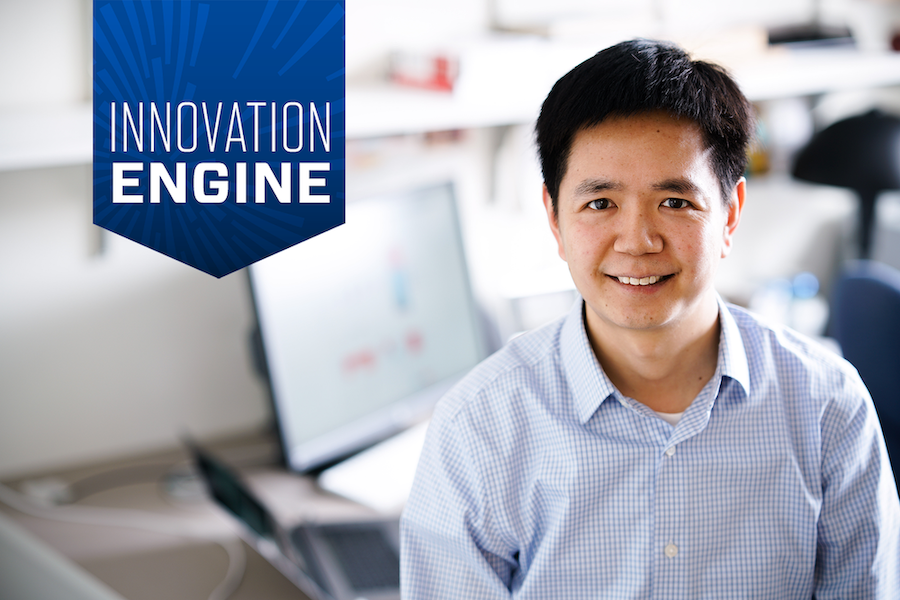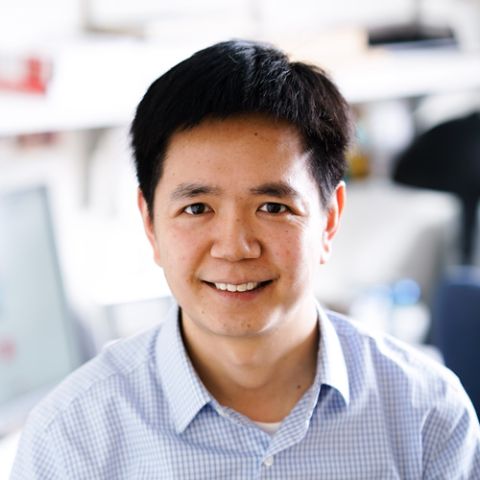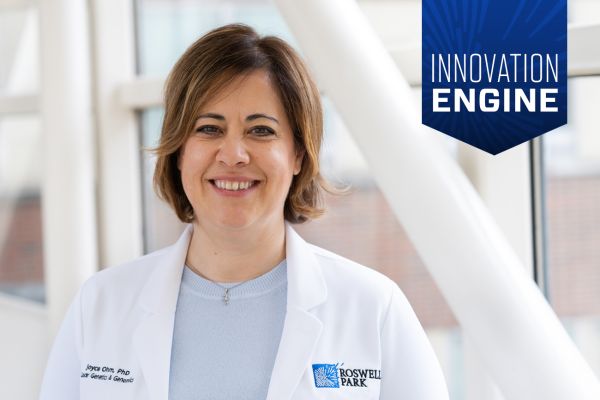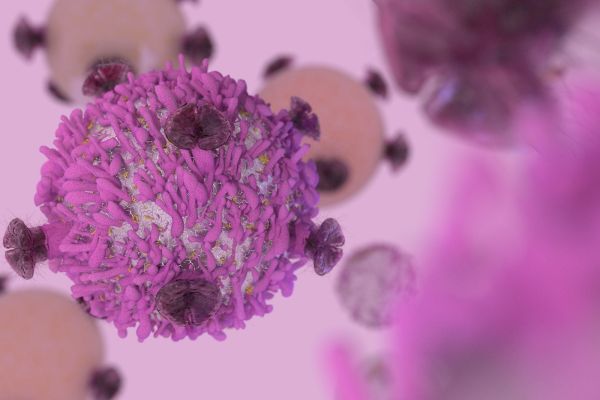Roswell Park researcher aims to boost effectiveness of immune checkpoint therapy across population groups — and see if these treatments may most benefit people of African ancestry.
The Innovation Engine series highlights high-impact Roswell Park science that advances the priorities of the National Cancer Plan — a roadmap for working together to end cancer as we know it. The work outlined in this post supports Goal 3: Develop Effective Treatments; Goal 4: Eliminate Inequities, and Goal 6: Engage Every Person.
When Sara Sade was diagnosed with metastatic melanoma in 2011, imaging revealed that she had hundreds of tumors all over her body. Fortunately, that year the FDA approved ipilimumab (brand name Yervoy) for the treatment of metastatic melanoma. Ipilimumab — a type of immunotherapy called an immune checkpoint inhibitor — “releases the brakes” on the immune system to mount a stronger attack against cancer.
Sara began treatment with the drug at Roswell Park Comprehensive Cancer Center in early 2012, and soon the tumors disappeared. Today, still cancer-free after 12 years, she serves as a coordinator for Roswell Park’s The 11 Day Power Play Cancer Resource Center. “Yervoy saved my life,” she says.
The first drug soon led to seven more
The success of ipilimumab drew renewed attention to the cancer-fighting potential of the patient’s own immune system and spurred the development of more immune checkpoint inhibitors and other types of immunotherapies. Today, immune checkpoint therapy includes eight FDA-approved drugs that are used to treat many types of cancer. They have been shown to increase long-term survival in patients with metastatic disease. For those diagnosed in the early stages, they can extend the time before the cancer begins to progress.
But not all patients benefit equally from immune checkpoint therapy and it’s not clear why. Researchers understand how people of European descent, like Sara, respond to these drugs, but limited data exist for minoritized racial and ethnic groups, including people of African ancestry. “There has been a historic lack of representation of minority patients in clinical trials,” says Song Yao, MD, PhD, Vice Chair and Professor of Oncology in the Department of Cancer Prevention and Control at Roswell Park. “This may be due to barriers to access, discrimination and mistrust in healthcare institutions, among other reasons.
Learn about the different types of immunotherapy we offer
Patients who receive immunotherapies should be treated at a center where the medical team has significant experience in researching and delivering these newest treatments.
Key finding reveals an opportunity
“Previous research from our group shows that breast tumors in people of African ancestry have a stronger infiltration of immune cells, and we believe that fact may open up an important opportunity. While those cells are more likely to be in an ‘exhausted’ state, they can be rejuvenated by immune checkpoint inhibitors. We hypothesize that Black patients in particular may benefit from checkpoint inhibitors. If that’s true, these drugs could help reduce cancer health disparities.”
In 2021 Roswell Park and the University of Rochester’s Wilmot Cancer Institute launched a study called the Disparities in Results of immune Checkpoint inhibitor Treatment (DiRECT) Cohort, aimed at finding out whether white and Black patients respond differently to immune checkpoint therapy and whether the drugs’ safety and effectiveness can be improved for everyone. Dr. Yao is a principal investigator of the study at Roswell Park.
“DiRECT Cohort is the first study to examine how Black and white participants respond to immune checkpoint inhibitors over an extended period,” says Dr. Yao. “Our innovative approach is based on a model that considers many different aspects of racial disparities — biological, psychological and social.”
The National Cancer Institute (NCI) provided financial support to recruit patients for the study to determine whether it was feasible. As of February 2024, DiRECT has recruited a total of 1,435 cancer patients — 1,132 white and 303 Black — to help answer key questions. The investigators hope to expand their research in the future to include other racial and ethnic groups.
Based on the program’s recruitment success, in November 2023 Roswell Park and Wilmot joined forces with Kaiser Permanente Northern California to pursue three major projects funded by NCI grants totaling $13.5 million. Christine Ambrosone, PhD, Senior Vice President for Population Sciences and Chair of Cancer Prevention and Control, serves as senior investigator at Roswell Park for the largest of the three projects, which will collect data to show how patients of different ethnicities respond to immune checkpoint inhibitors.
Dr. Yao and the team hope these projects will take the first step toward making the full potential of these immunotherapies available to everyone who could benefit. “Immune checkpoint inhibitors can make some very lethal cancers more manageable, so patients survive longer and enjoy better quality of life,” he says.




